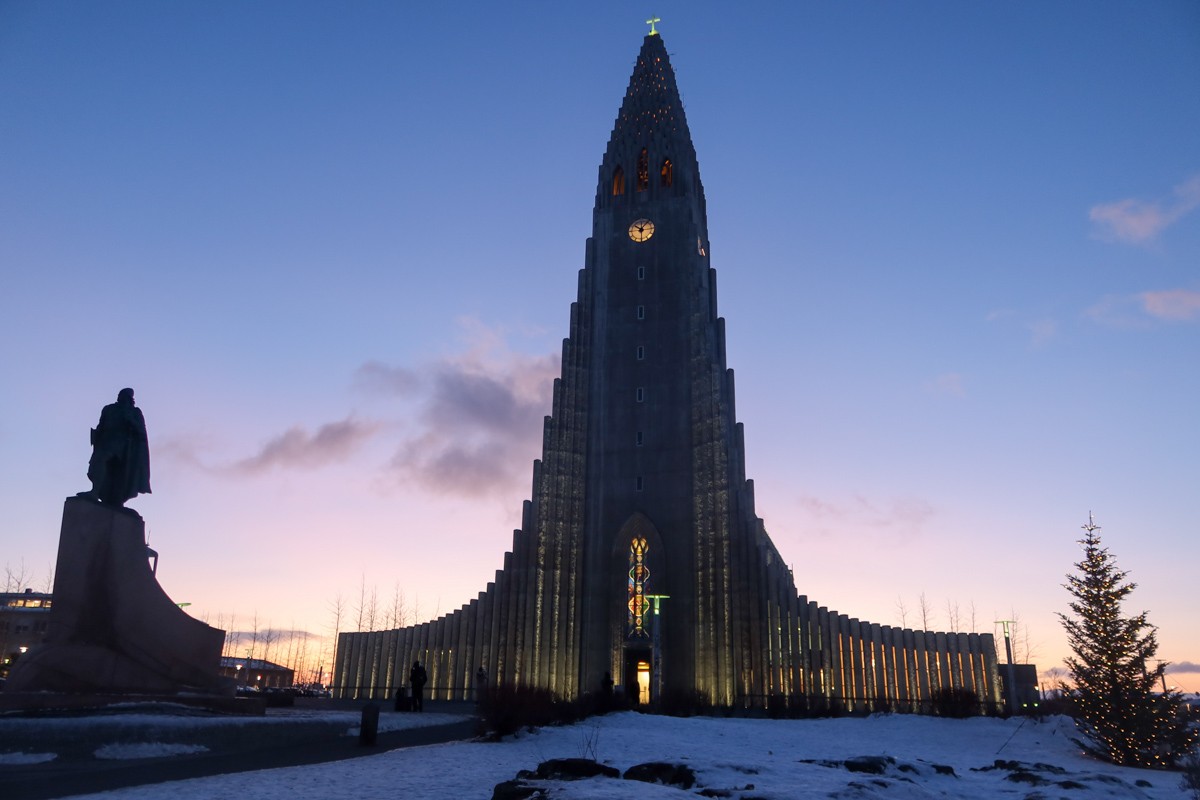Is Iceland safe? Yes, it’s among the safest places in the world!
However, recent news about volcano eruptions has caused people to question the country’s safety procedures.
I’ve visited the Northern European country twice; here are all of my thoughts about safety in Iceland!
This article draws from my two trips to Iceland. One trip was hosted by Jet2 Holidays, with some activities hosted by Visit Iceland. All opinions are my own.
Is Iceland safe?
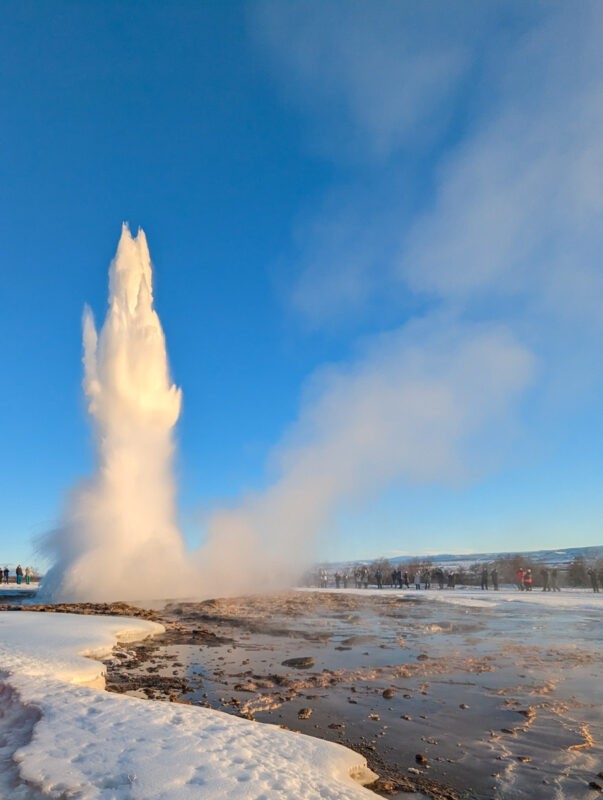
I’ve visited Iceland twice now, and I can confirm that it’s incredibly safe.
Social wise, Iceland is probably the safest country in the world!
But it does lie in one of the most geologically active areas in the world, so there are natural disasters here. However, Iceland is also one of the most prepared countries for natural disasters in the world. This means that, even when natural disasters do happen, injury or fatalities are very very rare.
It is virtually unheard of for any tourist to encounter any kind of danger in Iceland.
To prove just how safe Iceland is, I travelled there a week after the volcano erupted on 8th of February. I found it to be completely safe during this time.
Here’s my take on Iceland safety – read on if you’re planning a trip here!
My experience in Iceland
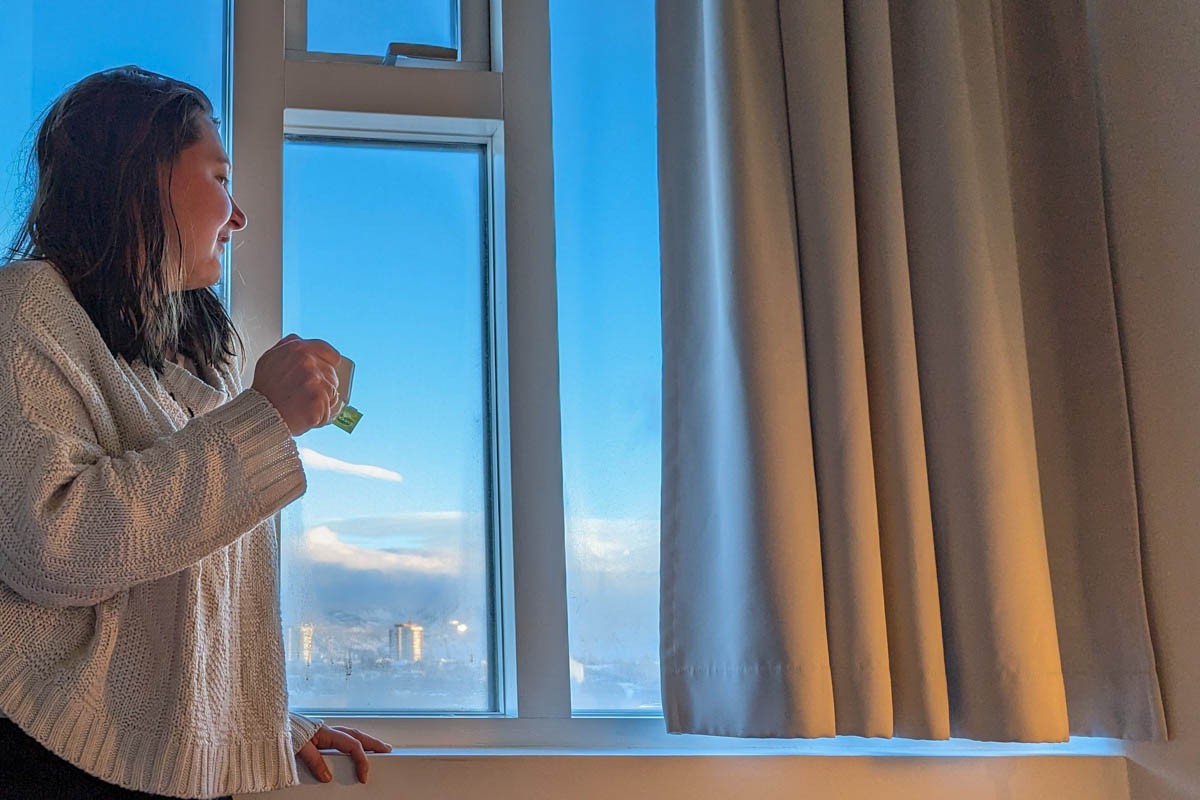
Iceland is safe to travel – even with the volcano eruptions currently in the news!
I flew into Iceland on 15th February, one week after an eruption on 8th February.
I did do some research before flying to check that I knew what I was getting myself into, and largely everything reported that it would be fine.
Flying into Iceland was very smooth, and nothing was said about the volcano even erupting until we landed in Reykjavik.
The man on the bus – who was a representative from Jet2 City Breaks – was the first person who mentioned it to us.
The volcano, which had come alive after 800 years of dormancy, was unpredictable and had been active for a few months.
He recalled a previous eruption a few years back that was more “tourist-friendly” because it was predictable and paths were created for visitors to view the lava safely. However, the current eruption was too unpredictable for that!
The only direct impact on tourists was that the Blue Lagoon had to be closed for safety reasons due to its proximity to the volcano.
Volcanoes in Iceland
Volcano eruptions in Iceland do happen, however this isn’t typically something that you need to be worried about when planning a trip here.
Iceland is home to some of the best volcanologists in the world, and they regularly track all volcanoes and know what to do if one shows signs of erupting soon.
I even went on a volcano hiking tour to the Reykjanes Peninsula just a week after the nearby volcano erupted.
I did this with a guide – and I would recommend going with a guide at the moment – but it is still very safe to do so.
The area around the active volcano is sectioned off and you can’t go in there, but hikes elsewhere on the peninsula are safe enough.
You can take a look at the tour that I did by clicking here.
On a side note, if you want to learn more about the volcanoes in Iceland and how the country learns about them and lives with them, I highly recommend the lava show in Reykjavik where you can see lava and how it reacts to different substances in a very controlled environment.
You can read more about it and book tickets by clicking here.
Driving in Iceland
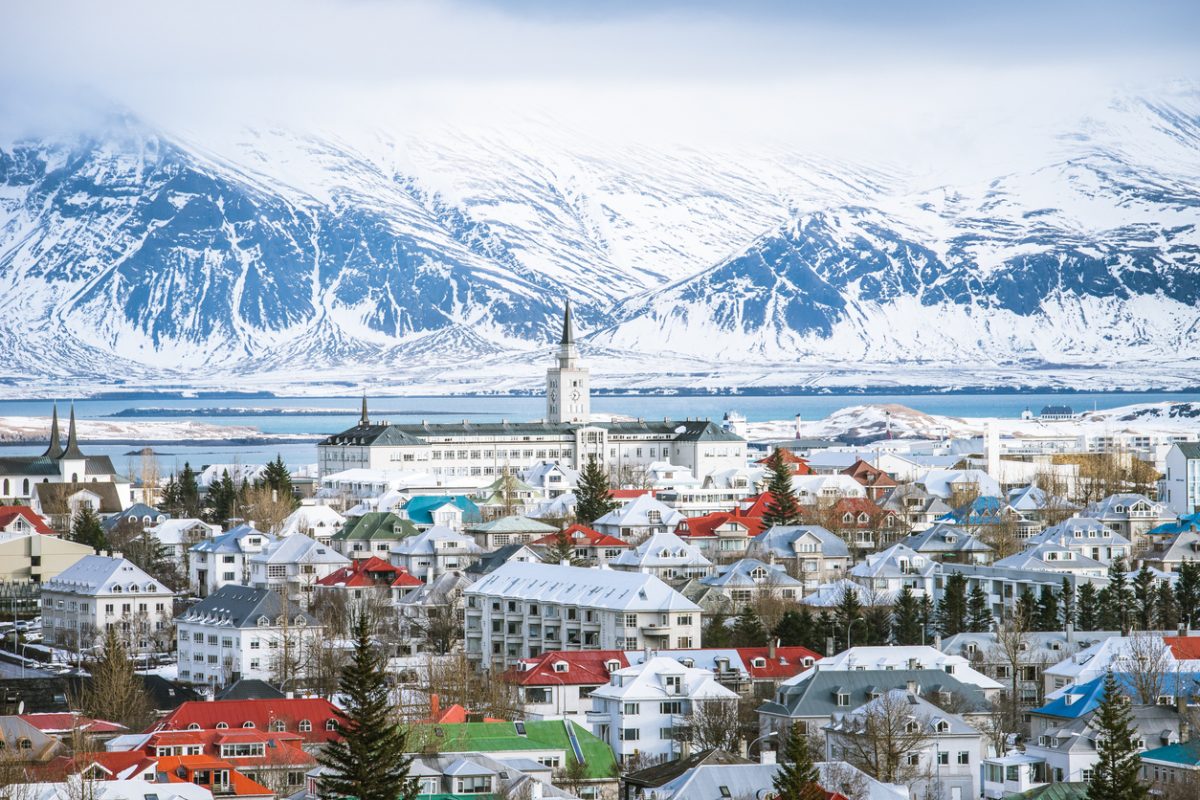
One piece of safety advice that I feel obliged to give for Iceland is that while driving is very popular here, some of the roads can be adversely affected by ice.
This is especially true in the winter.
Even though lots of tourists rent cars here, I actually wouldn’t recommend doing so if you don’t feel comfortable driving yourself, particularly in the winter.
I wouldn’t recommend doing so if you have not experienced driving in heavy snow before.
In the winter months, it can snow at any time – even if the weather is mild in some parts it can be much colder in others.
So, if you have any reservations about driving at all, play it safe and book on tours from Reykjavik instead.
That said, most cars are fitted out with snow chains and snow tyres, so if you are comfortable driving in the snow (i.e. if you have driven in the snow before), then driving in the winter shouldn’t pose too much of a problem.
Driving in the summer months is much less of an issue and if you feel comfortable driving in most European countries, you should be fine driving in Iceland.
But do be aware that the winter season is very long here, and you can find snow in parts of the country as early as September or October and as late as April or May.
Weather in Iceland
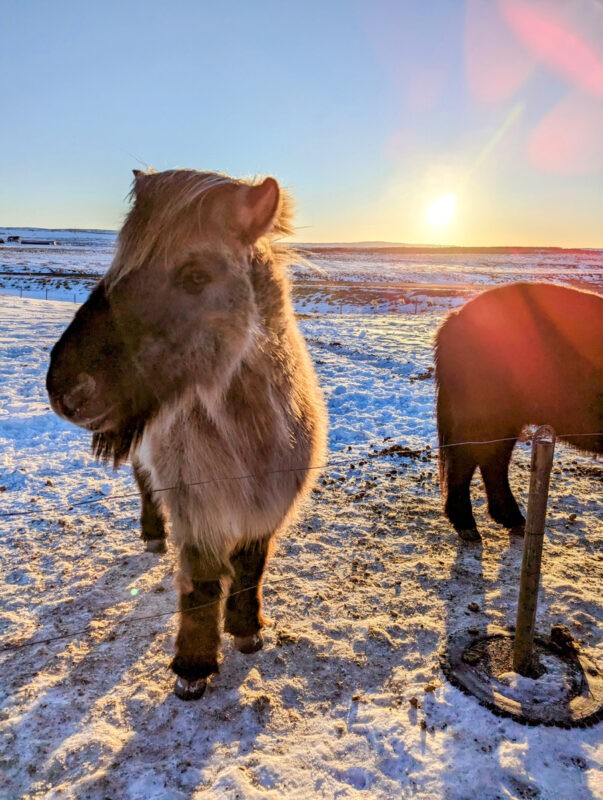
This brings me to my next point! The weather in Iceland is, in a word, temperamental.
Reykjavik isn’t as cold as you may think – it does snow here throughout the winter, but it the average temperature is usually around freezing – but the rest of the country can be incredibly cold and snow-covered throughout the winter months.
It’s important to be aware of this if you are going hiking independently or doing any exploring without a guide.
Outside of the winter months, the weather is less severe, although strong winds and rain are both very common. Again, it’s important to be aware of the potential temperature change, always carry supplies with you in case of breakdowns, and take plenty of layers.
Even pedestrians in the capital should be aware of the temperamental weather in Iceland because some pavements can be covered with snow throughout the winter months and can be very icy.
My mum, who is a bit more unstable on her feet, found the pavements quite difficult to navigate on our January trip to Reykjavik.
Crime rates in Iceland
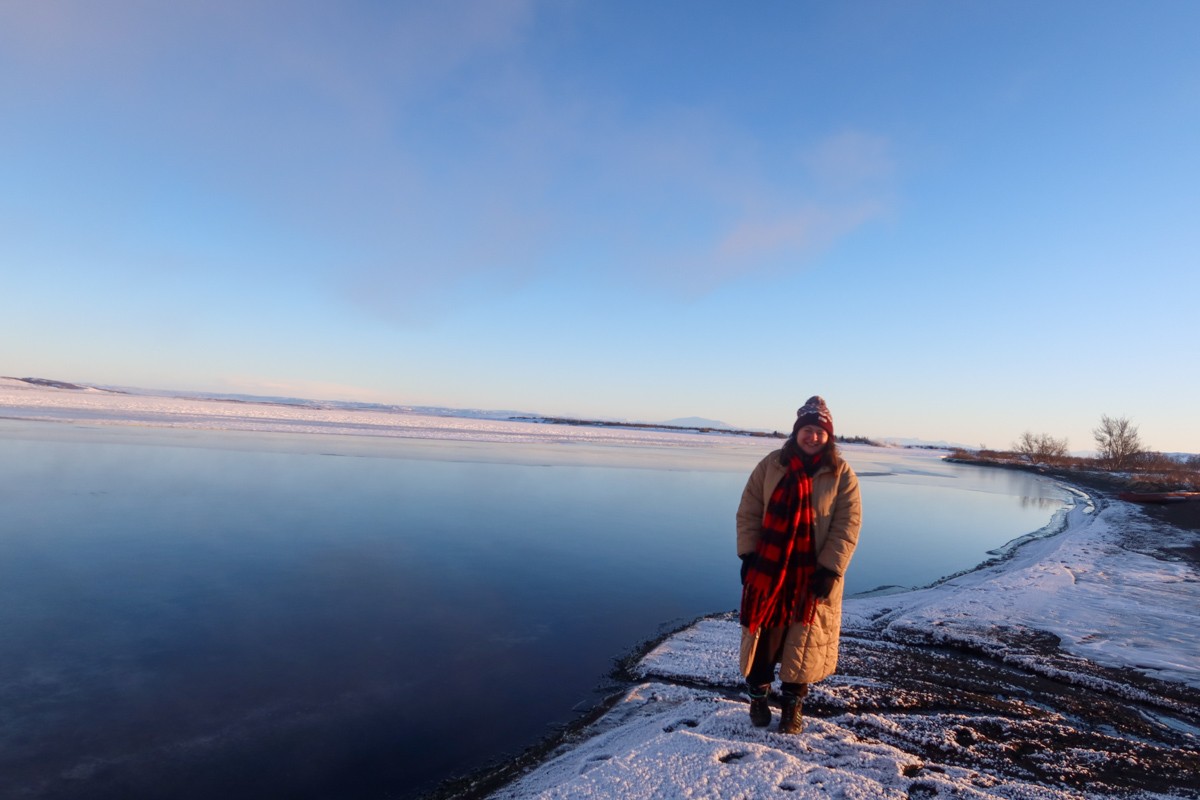
The crime rates in Iceland are among the lowest in the world, and if you are visiting from any other country, this really isn’t something you need to be concerned about, because it’s highly likely that your country will have a higher crime rate.
On our first day of my most recent trip to Reykjavik, we did a walking tour and our guide, Asi, told us that there is around one murder every year in Iceland.
He also said it’s usually perfectly safe to leave your phone and laptop on a table in a restaurant, and they’ll likely still be there when you return! However, I wouldn’t recommend trying this!
Scams in Iceland
Just as the crime rate is very low in Reykjavik, there are barely any scams. In fact, from my research I found that one of the biggest scams is fake Icelandic sweaters!
Apart from being overcharged for things, scams aren’t something you need to be too wary of!
Food and drink safety in Iceland
And again, food and drink safety is not something you need to worry about.
In Iceland, the food is of very high standard – which is surprising given that quite a lot needs to be imported- and if you’re wondering can you drink tap water in Iceland – it is amongst the best in the world.
That’s all you need to know about safety in Iceland!
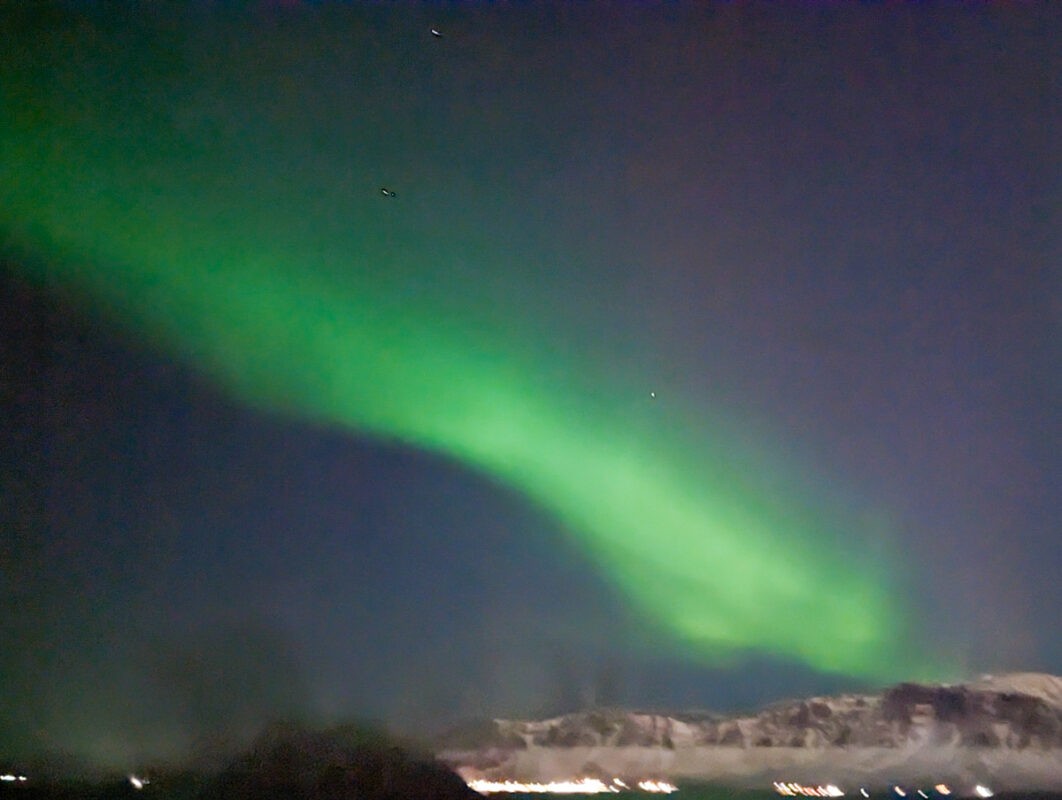
Iceland is most definitely safe and it’s a wonderful place to visit!
Crime rates are low, and as long as you follow advice from the volcanologists and government, you can stay out of danger when it comes to natural disasters.

